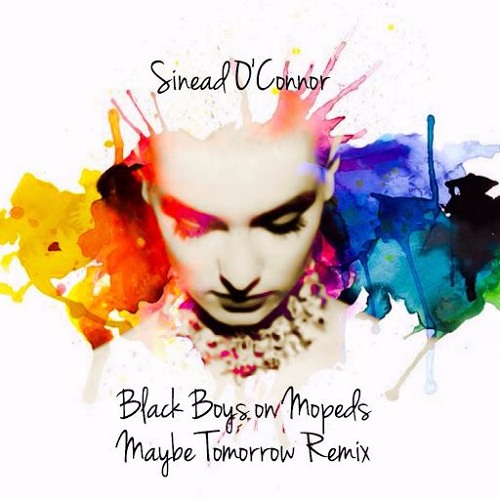 | Black Boys on MopedsSinéad O’Connor |
Writer(s): Sinéad O’Connor, arranged with Karl Wallinger (see lyrics here) Released: March 20, 1990 (as album cut) First Charted: -- Peak: 1 DF (Click for codes to charts.) Sales (in millions): -- Airplay/Streaming (in millions): -- radio, 1.40 video, 3.41 streaming |
Awards:Click on award for more details. |
About the Song:Sinéad O’Connor emerged in 1987 with The Lion and the Cobra. The singles “Troy,” “Mandinka,” and “I Want Your Hands on Me” suggested she could be a darling of the alternative-rock scene. No one could have anticipated the monster success that came with her sophomore album I Do Not Want What I Haven’t Got. It became a multi-platinum #1 smash, thanks to her heart-wrenching (and chart-topping) iconic cover of Prince’s “Nothing Compares 2 U.” It would be her only top-40 success in the United States, although she became an unforgettable presence because of her troubled life and using “her platform to shine a light on important issues” OP by “making her art a powerful vehicle for change.” OP “Her powerful social commentary was evident in ‘Black Boys on Mopeds,’” OP from the I Do Not Want album. It was “a clear demonstration of her activism” MM standing as one of her “starkest and most unshakeable protest songs” BB. It is “a devastating ballad of just her and multi-tracked acoustic guitar” BB marked by her “politically-charged lyrics and passionate performance.” MM The “devastating wake-up call” YH was “a powerful critique of British police brutality and systemic racism.” MM “She laments the hypocrisy of a U.K. government that decries murder in foreign lands while its police enact racist killings on home turf.” BB She wrote the “haunting ballad after two teenage boys, riding borrowed mopeds that police assumed they’d stolen, were chased by law enforcement and fatally crashed.” RS Sadly, the message has remained relevant “as Black Lives Matter uprisings have brought increased awareness to the very type of police killings O’Connor wrote about more than three decades ago.” RS “With its starkness, poignant message, and delicate melody, not only is it an essential Sinead O’Connor song, but a track that is essentially Sinead O’Connor.” YH The song has been covered by Phoebe Bridgers, Sharon Van Etten, and alt-metal band Chevelle. Resources:
Related Links:First posted 7/26/2023. |








No comments:
Post a Comment